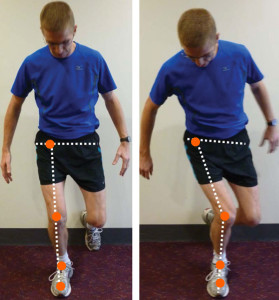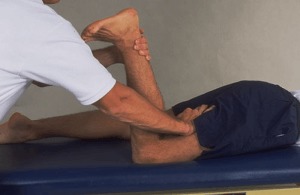Omaha non-surgical knee clinic is on a mission to help those who suffer from knee pain and joint dysfunction. We want to help you discover the primary cause of your knee pain, degeneration, and dysfunction.
We do this by performing a 4 point alignment and stability check that includes all the regions that allow the knee to become injured. Once we have diagnosed your primary causes, we can then utilize Active Alignment Therapy (AAT) to rebalance and re-coordinate the joints, muscles, tendons, and ligaments.
Active Alignment Therapy or (AAT) is the latest manual therapy for the treatment of knee pain and dysfunction. This procedure helps balance and coordinate the muscle of the knee, hip, foot, ankle, and back. This in turn will help you correct the knee joint alignment during walking, running, standing, sitting, and climbing steps. This is an effective and safe approach to help heal and prevent knee injuries.
Common Symptoms of Knee Dysfunction
- Pain or inflammation in or around the knee joint or knee cap
- Secondary pain in other surrounding joints (foot, ankle, calf, thigh, hip, back)
- Popping, clicking, or grinding noses in the knee
- Pain that becomes worse while going down steps
- Pain that becomes worse while sitting
- Stiffness in the knee

In order to diagnose your knee dysfunction we utilize out 4 point alignment and stability check where we check all of the regions of your body that can affect the function of your knee. These regions include the foot, ankle, knee, and hip.
Once we establish what your pattern of knee dysfunction is, we will decide if you will be a good candidate for Active Alignment Therapy (AAT).
Patient who will not be good candidates include those who have advanced loss of cartilage in the knee to where it will need surgery to repair the damaged tissue (bone on bone). X-rays may be needed to diagnose these patients. Some patients with severely torn ligaments may also not be a good candidate for Active Alignment Therapy (AAT). An MRI may be needed to diagnose these patients. If you have had recent images taken of your knee, bring them with you to your first appointment.




